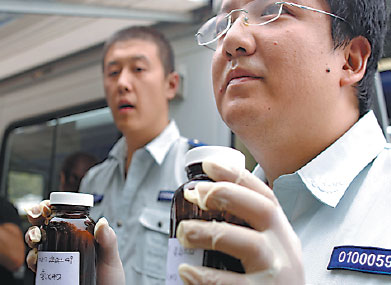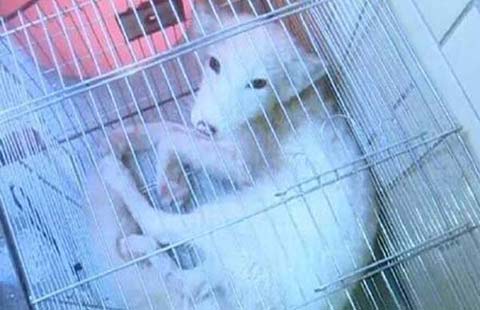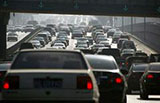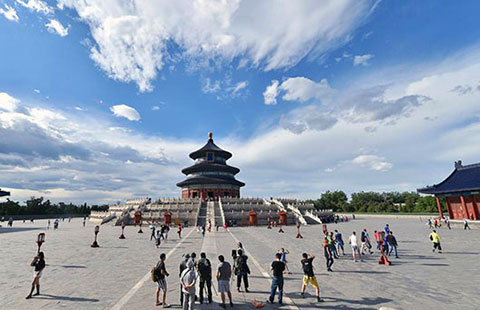White foam on rainwater 'is normal'
By Tang Yue in Tianjin and Zheng Jinran in Beijing (China Daily) Updated: 2015-08-19 07:44
Experts draw up emergency plan but say pollution levels are safe so far
Thunderstorms on Tuesday morning made the Tianjin recovery operation more difficult, with an increased risk of rainwater becoming polluted. However, the air and water quality were still within what is considered a safe range, monitoring officials said.
The first rainfall after the massive blasts on Aug 12 has prompted fears that remaining hazardous chemicals at the site may pollute the water and then contaminate surrounding areas, which would be a danger to public health.
Since the rainfall, several photos of rainwater covered with white foam have been posted online, with people questioning whether it was polluted or not.
Wen Jinlong, a bus driver commuting from the blast zone to downtown, noticed the white foam, "which is quite different from the situation in light rain".
"I do not feel sick, but I'm still worried about the foam," said the local resident, who is in his 40s.
Experts said people would choke after inhaling a minor amount of oxygen contaminated by sodium cyanide gas, according to a report carried by Caijing.com.
"After the rainfall, the 17(water quality) monitoring stations had not detected any abnormal changes," Deng Xiaowen, director of the Tianjin environment monitoring station, said on Tuesday afternoon. On Monday, officials said the 17 stations within 3 km of the main explosion had detected cyanide since Sunday.
From the photos, it's normal to see some white foam after rain, he added.
After heavy rainfall, harmful chemical residues on the ground may release toxic gas into the air, said Bao Jingling, chief engineer of Tianjin's bureau of environmental protection.
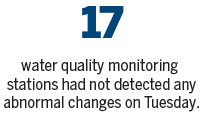
As long as there are no further blasts, there will be no direct air pollution, he added. The bureau has carried out more frequent tests on the air and water quality since the rainfall, Bao said, and there have been no substantial leaks of the toxic sodium cyanide.
If an excessive level of cyanide or organic compounds is detected in the air, the authorities will issue warnings and evacuate people from the blast zone, he said.
"Currently, the rainfall is not heavy and contamination on the surface water is under control," said Bao.
The station said Tianjin was forecast to have more rain from Tuesday night into Wednesday.
In the event of more rain, officials plan to use ponds and drainage systems to store the water, Bao said.
Sewage plants in the city will also add an extra stage to their cleansing process and contaminated water will be channeled through them.
The 1-meter temporary wall built at the core blast zone will be strengthened to prevent contaminated water draining out, he added.
"We will install more monitoring stations for air and water quality, especially when heavy rainfall and gales are due," Bao said.
|
Experts from Beijing Environmental Monitering Center display the tested samples collected from the blast zone in Tianjin on Tuesday. Zhu Xingxin / China Daily |
(China Daily 08/19/2015 page3)
- Delegation salutes Tibet anniversary
- Officials are told to act as anti-graft watchdogs
- Great Wall safeguarded in united action
- Vice minister pledges more efforts to improve air quality
- Beijing’s efforts to control air pollution start to pay off
- China's military committed to reform
- Netizens rip singer over baby photos
- Central govt's growing support for Tibet
- Monument to be built on Tianjin blast site
- China and Russia seal raft of energy deals
